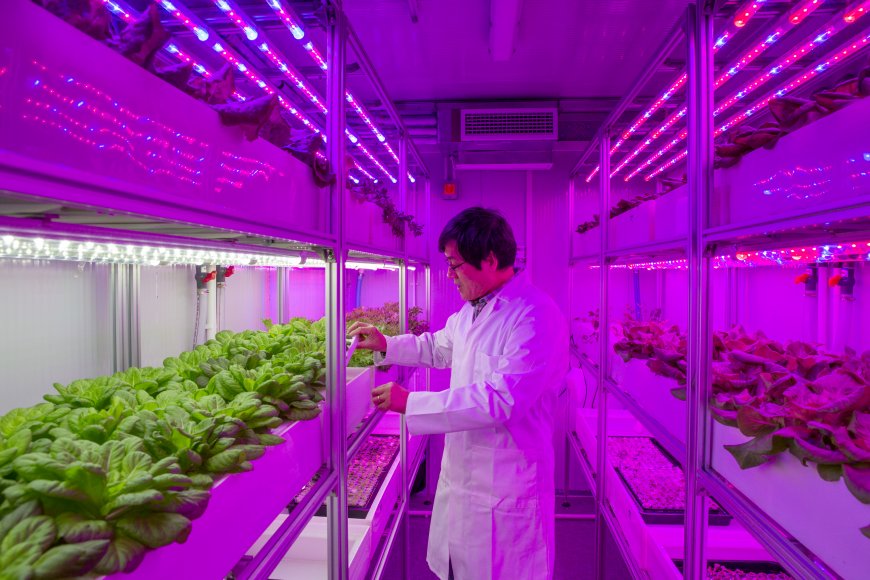
A UK university is developing a next generation vertical farming system utilising hi-tech growing methods to produce high quantities of crops all year round.
The advanced system grows vegetables, salads and fruit, stacked vertically and without the need for soil, according to Nottingham Trent University.
In partnership with Henley Associates Ltd, they are creating two vertical farming units – one about the size of a shipping container and the other about half the size.
They will act as an initial proof of concept, paving the way for more like them to be built for and used by retailers, caterers, local authorities and schools.
The aim of the project – made possible with £800,000 funding – is to help reduce the UK’s reliance on imported produce, feed a rising urban population and tackle the challenge of decreasing arable land.
The fully autonomous farming system will be capable of producing fresh food which is more nutritious, have far bigger yields and are ready to harvest in at least half the time.
Researchers say it will operate without the need for favourable weather, fertile soil, lots of water and the usual high-running costs associated with the crop sector.
As crops will be produced closer to the consumer, they add that the system will also reduce logistical costs and environmental impact and maximise shelf-life.
Crops are grown without soil in a nutrient-rich solution using an ultrasonic semi-mist culture aeroponic and hydroponic growing system.
Plant roots are suspended mid-air in high humidity, and intermittently misted with a nutrient solution that increases nutrient use efficiency and plant growth with a surplus of oxygen at the root surface.
The system will be optimised to deliver specific combinations of lighting, environmental and nutrient mix profiles to suit the needs of specific crops, and solar panels will provide electricity to run the whole system.
Chungui Lu, professor of sustainable agriculture in Nottingham Trent University, said there was an 'urgent need' to develop new methods to enable intensive and sustainable crop production.
He said it was also important to reduce reliance on imports, particularly given the UK’s exit from the European Union.
"We need an innovative container farming system that can be manufactured at low cost, is easy to install, unaffected by climates and can produce high-yields with high-quality crops.
“Using novel semi-mist culture methods, this will be an advanced, energy-efficient and carbon-neutral vertical farm for onsite use at retailers, schools and other organisations.
“We will have a new generation of containerised vertical farming that will improve UK resilience to environmental shocks and food security and will be beneficial for both the farming industry and society.”
The vertical farm will be created over the next two years – one will be based at the university’s Brackenhurst Campus and the other in Grantham, Lincolnshire.
